In Budapest, a ‘guerrilla-like’ group is mobilizing against the alleged takeover of a historic synagogue
Hungarian Jews are accusing the Chabad movement of usurping control of their community organization — and its funding and real estate — with the aid of the Hungarian government
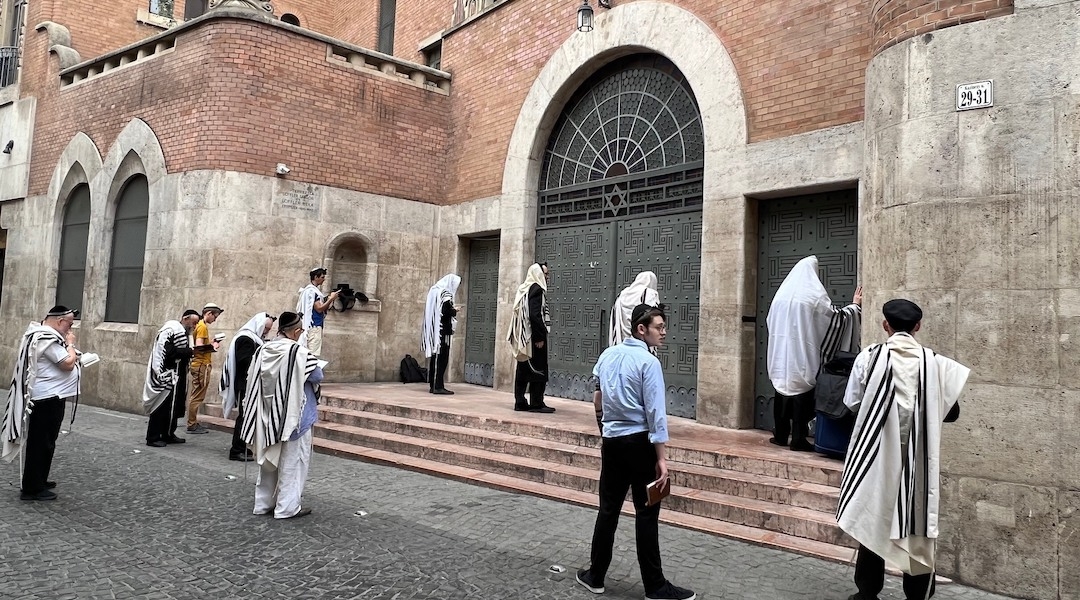
Worshippers hold morning services outside the locked doors of the Kazinczy Street Synagogue in Budapest, Hungary, July 21, 2023. (David Kelsey)
(JTA) – David Kelsey, a publicist from New York, was disturbed to hear about an alleged takeover of Budapest’s historic Orthodox congregation, in part because of his Hungarian Jewish roots. So when he happened to be visiting the city last month, he decided to investigate the situation for himself.
His timing was eerily impeccable.
On the second morning of his visit, after spending time listening to community members, he found them gathered outside the locked doors of the historic Kazinczy Street Synagogue, barred from entering by the new management.
The photographs he took on the scene show an elderly man praying while seated on an overturned trash bin on the street, and the hood of a car serving as the best available surface to set down prayer books and ritual garments.
“That the dignified old man had to use the garbage can as a chair just really showed me how degraded and disgusting the whole thing was,” said Kelsey, whose eponymous firm sells advertising on behalf of several Jewish media outlets, including the Jewish Telegraphic Agency and other brands operated by its parent company, 70 Faces Media.
“It was all very strange and awful,” Kelsey added. “They were in such pain. And so sad. … I was so angry.”
Kelsey had witnessed an escalation in a saga that has been unfolding for more than two years. Members of the Autonomous Orthodox Jewish Community of Hungary, which operates the Kazinczy Street Synagogue and several other institutions, are accusing the Hasidic Chabad movement of usurping control of their group — and its funding and real estate — with the aid of the Hungarian government. Three religious courts have ruled that the leadership changes should be reversed or put on hold, but a secular court has sided with Chabad.
Representatives of Chabad have repeatedly rejected the allegation of a takeover of the Orthodox organization, known by its Hungarian acronym as MAOIH. They say the group remains independent and that the current leadership assumed its place legitimately through the MAOIH’s formal process.
“Chabad did not and is not planning on ‘taking over’ MAOIH, whatever that is supposed to mean,” Chabad’s official organization in Hungary said in a statement.
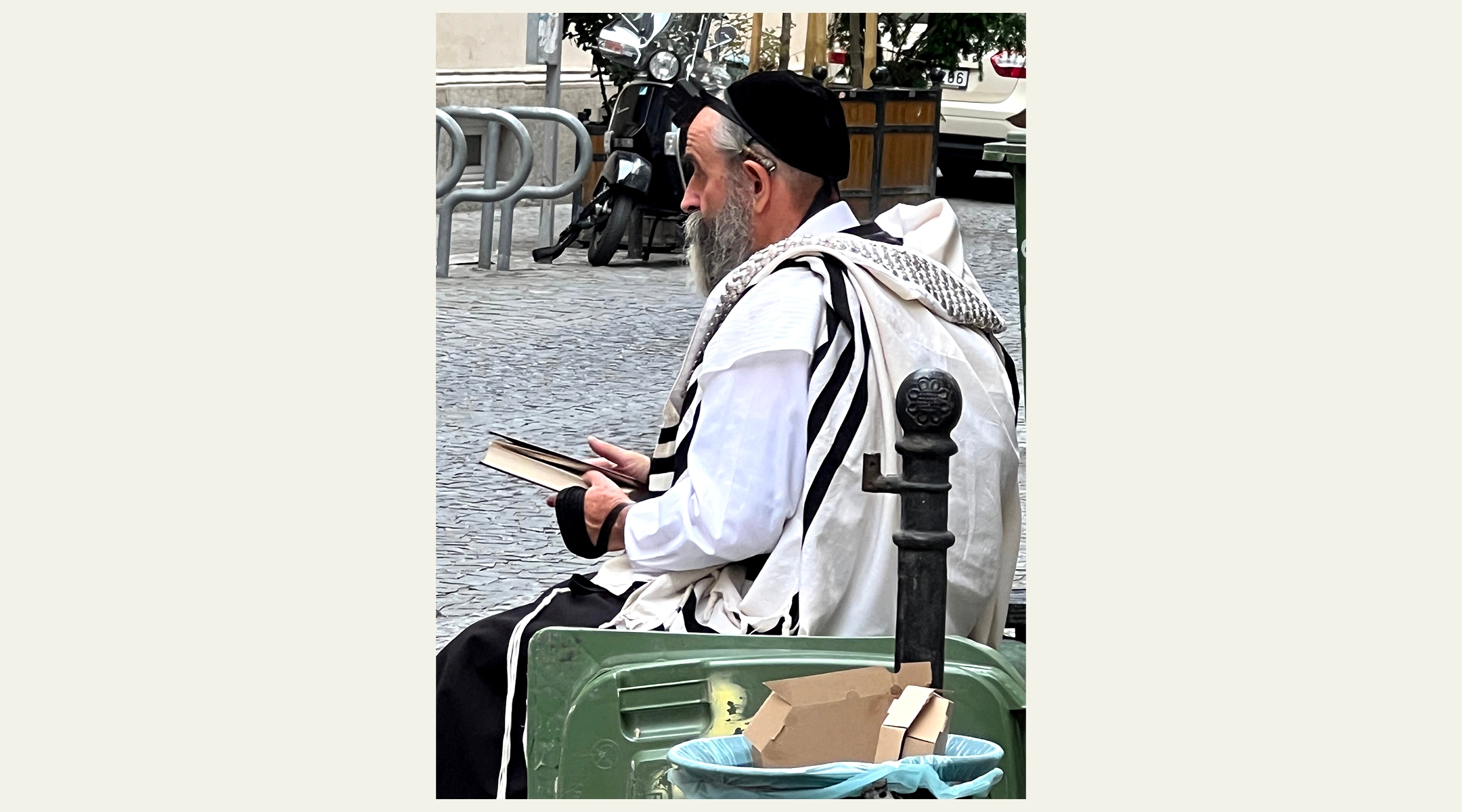
But MAOIH’s former president, Róbert Deutsch, says rabbis identified with Chabad took advantage of the process as part of a deliberate power grab. He says he had initially trusted them and gave them leverage that they eventually exploited to take control.
“I was betrayed, Deutsch said. “I totally take responsibility — for being friendly with these people and trusting them fully. But it’s a very sad thing to me to realize that you cannot trust even the most religious-looking person. They care about gaining as much as possible financially, even if they need to destroy a local community. And to me that’s such an evil.”
Now, a group of Hungarian Jews has organized into a “sort of guerrilla organization,” as one member put it, to resist the alleged takeover.
“We call ourselves ‘Shomrei Hadas,’ meaning ‘guardians of the faith,’” said the member, Pál Hegedűs, a professor of mathematics at the Budapest University of Technology and Economics. “It’s the original name of Orthodoxy here from 150 years ago. We use this name and try to be active in the media and in public life.”
The historical reference serves as a reminder that a once-major center of Orthodox Jewry was decimated by the Holocaust and, later, under communist rule, further reduced by emigration. Membership in MAOIH dwindled to only about 50 people before the recent controversy, and the synagogue had no dedicated rabbi and lots of dysfunction, per several accounts. But the group still possessed an official status entitling them to government funding as well as a host of institutions, including a school and old-age home, and enviable real estate.
Perhaps the jewel in its holdings is the Kazinczy Street Synagogue, an Art Nouveau structure that was completed in 1913 and survived World War II relatively intact before falling into disrepair during the communist era. Renovation more recently has turned it into a tourist destination, with an onsite kosher restaurant serving traditional Ashkenazi and Hungarian foods, even as it has continued to function as an Orthodox synagogue.
Like MAIOH, Chabad operates a portfolio of institutions in Hungary and receives some government funding to do so. Its goal in the country is the same as elsewhere: to bring as many Jews as possible closer to their religion. In support of this mission, the movement has established services for the country’s Jewish community, including a school, a kosher butchery and a mikveh, or ritual bath. It also operates multiple synagogues in and around Budapest.
But while Chabad has increased the number of Jews engaging with Jewish institutions and practices in some of the places where it operates, that’s not what has happened so far on Kazinczy Street.

It closed the synagogue’s doors on July 20, saying that it needed to make renovations. Shomrei Hadas members and Deutsch say the precipitating factor was different: They said the closure happened after a faction of MAIOH that has not recognized the new leadership recruited a new rabbi from a different Hasidic sect. They also say no sounds of construction can be heard from inside the synagogue complex and note that a sign placed outside invites visitors and tourists to enter the main sanctuary for a fee.
After Kelsey’s photographs circulated on social media and amid a general outcry in the community, the new Chabad-aligned leadership erected a fence and scaffolding in front of the entrance allegedly, according to Shomrei Hadas, to prevent further worship. The group said the directive came from Rabbi Gábor Keszler, who allowed the community members the temporary use of an adjacent kosher restaurant he had also shuttered.
“It’s a clear manifestation of Chabad’s double measure,” Zev Paskesz, the head of Shomrei Hadas, who claims to be the legitimate leader of MAOIH, said in a statement. “If you are a visitor you can buy tickets to the big Kazinczy shul and daven there, but if you are a simple Orthodox community member you can daven in the Hanna restaurant but you are not allowed to enter the big Kazinczy shul.”
Paskesz and many others in the local Jewish community believe that recent events are part of a deliberate strategy to alter and monopolize the institutions and religious practices of Hungarian Jewry. According to this view, Chabad, a global but decentralized Orthodox Jewish outreach movement based in Brooklyn, has acted to take control of MAOIH’s real estate and its annual allotment of about $1 million in government funding as one of three officially recognized Jewish communities in Hungary.
The other two are Chabad itself, acting through the Association of Hungarian Jewish Communities or EMIH, and the liberal Neolog Jewish movement led by a group called Mazsihisz. Orthodox Judaism is relatively small in Hungary and the vast majority of the country’s estimated 100,000 Jews are represented by Mazsihisz.
Andras Heisler, Mazsihisz’s former leader, took to Facebook in May to fume about the alleged takeover, which he dubbed “a sin against Judaism.”
The Chabad-aligned rabbis now running MAOIH did not respond to questions. Through a spokesperson, the EMIH declined a request for an interview with its leader and provided answers to written questions by email, denying the allegations.
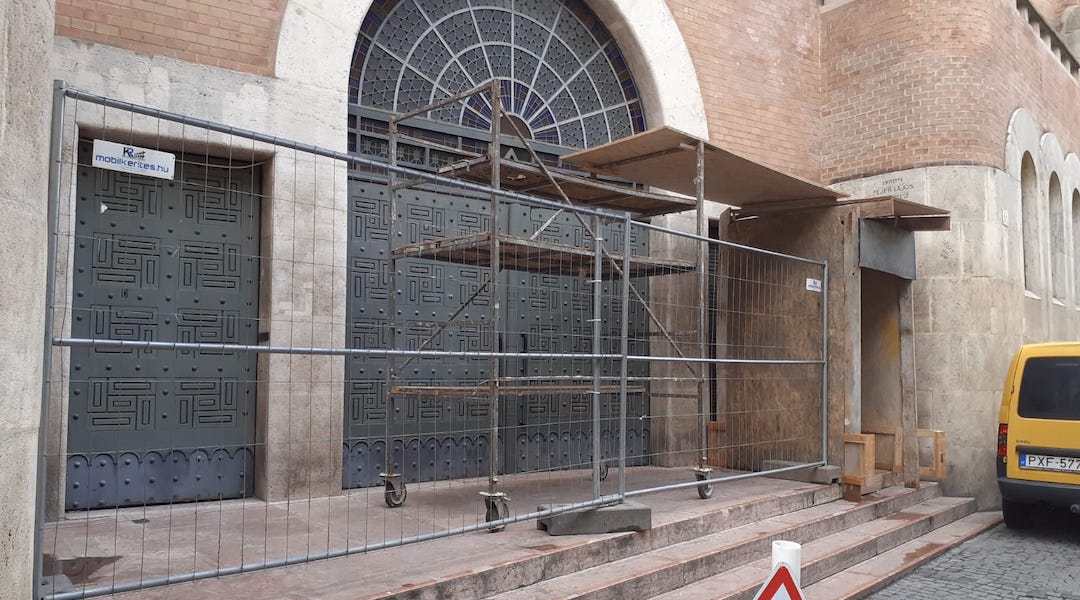
“Naturally, the two Orthodox communities have strong ties to each other, all Orthodox children learn in the Chabad institutions (including those affiliated to MAOIH), and there are many who are members in both communities, etc.,” EMIH said. “Still, legally there are two communities, two independent entities. The Kazinczy Street synagogue complex does not belong to Chabad-affiliated EMIH and we have no authority over it.”
Accusations of encroaching on existing institutions and attempting to take them over have long dogged Chabad as the movement has expanded rapidly in recent decades. In 2005, for example, a rabbi in Russia said that he was forced to hand over the congregation he had established to the Chabad-affiliated Federation of Jewish Communities of Russia. Similar stories have been reported in Ukraine, the Czech Republic, Massachusetts and elsewhere. In some cases, however, communities that had seen their institutions decline invited Chabad rabbis to take over and rejoiced over the infusion of new energy, as was the case in Buenos Aires in 2005 and Biloxi, Mississippi, in 2020. Part of what is driving the dynamic is that many Chabad emissaries come to their adopted community with little or no funding and face enormous pressure to quickly establish a presence.
For longtime affiliates of MAIOH, the leadership change at their organization reflects not just a pattern but a strategy. They believe the alliance between Chabad’s chief rabbi in Russia, Berel Lazar, and Russia’s president, Vladimir Putin, is a direct inspiration for Chabad’s tactics in Hungary. Rabbi Shlomó Köves, the head of EMIH and Chabad’s chief rabbi in Hungary, has built close ties with the government of Hungarian Prime Minister Viktor Orbán.
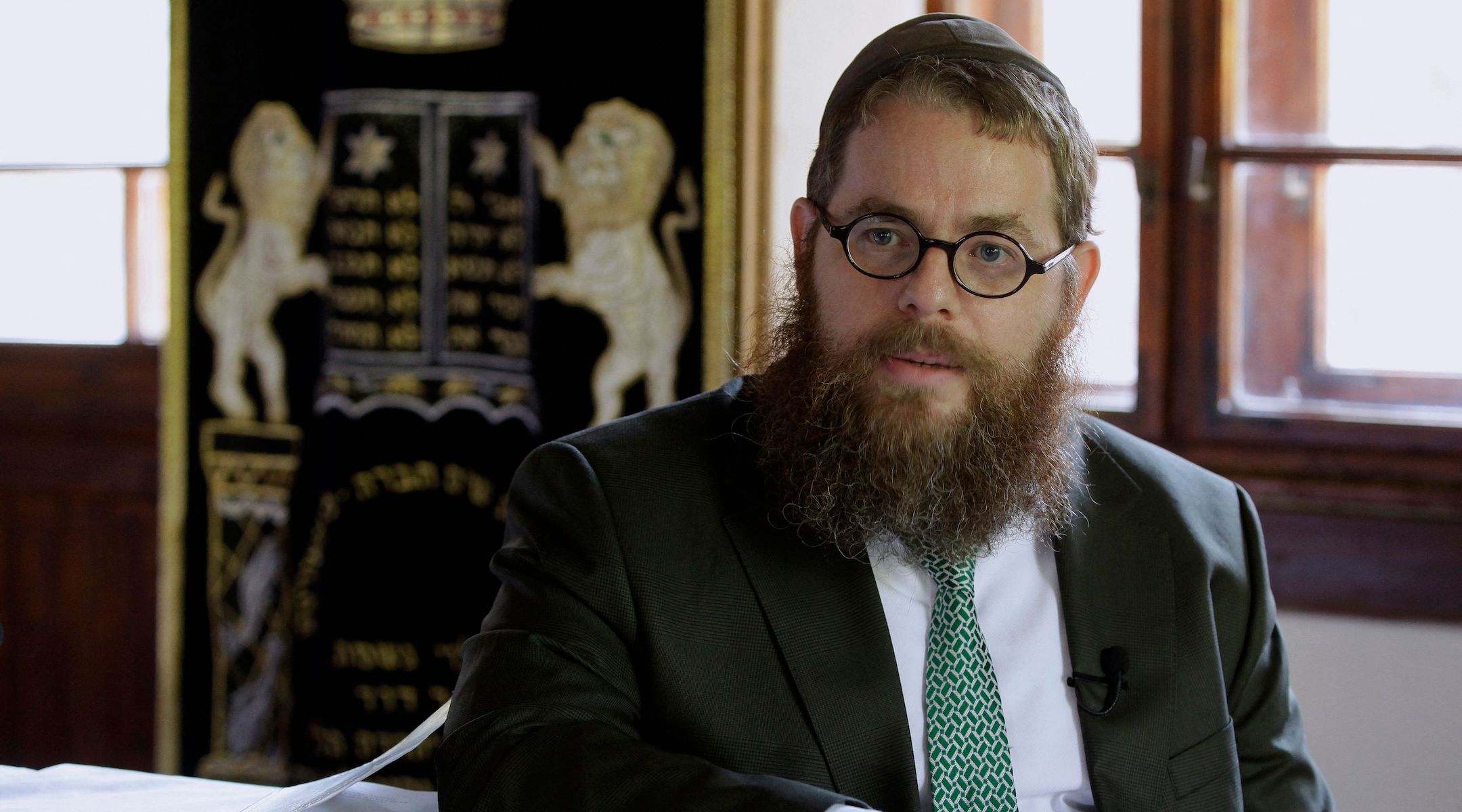
Critics believe Chabad has received favorable treatment in return for silence in the face of the authoritarianism that they say has characterized Orbán’s rule, including the whitewashing of Hungarian complicity in the Holocaust and rhetoric against Hungarian-American Jewish financier George Soros. One possible measure of Chabad’s standing is the money the government is pouring into a Chabad-sponsored university.
Referring to Chabad’s ties with Putin in Russia, one Shomrei Hadas member who declined to be identified for fear of reprisal said, “They want to create the same model in Hungary.”
It is not uncommon for Chabad to stir controversy and to stoke close ties with government officials when seeking to expand, according to Sue Fishkoff, a journalist who has written extensively about the movement.
“When Chabad moves into a new community, one of their first acts is to present themselves to the local media and political leaders as the representative of the local Jewish community,” Fishkoff said. “Typically the emissaries call the media to give interviews about an upcoming Jewish holiday, and invite the mayor or other elected official to ‘light’ the Hanukkah menorah. It’s all part of the value the movement places on getting along with the government, thus ‘staying out of politics,’ when in fact supporting the sitting government is taking a political stand. Not surprisingly, none of this sits well with other Jewish congregations in the area.”
EMIH did not address JTA’s questions regarding its relationship with the Hungarian government.
The story of the alleged takeover starts in January 2021 when Róbert Deutsch was elected president of the congregation. The owner of a dental supply company in his late 50s, Deutsch had decided to run for the job in the hope of improving a community he believed was unwelcoming and mired in financial and spiritual disarray.
“We inherited something that our ancestors worked very hard for. It was neglected and destroyed following the Holocaust. When I took over, my intention was to clean the mess and build a beautiful place,” he said. “I didn’t take a salary. I just wanted to dedicate my time and energy to change it into a flourishing place.”
He also wanted to open up the community to more people including Chabad, with which had enjoyed “long-term and good relationships.” Chabadniks had been helpful in his personal transition from secular to religious and he turned to his friends in Chabad for support.
“Shlomó Köves was very close to me. He was there to assist me when my father passed away,” he said. “When I was thinking about running, I went to him and he was very supportive and said, ‘We can do a lot of things together.’”
Deutsch hired two people who were referred to him by his Chabad contacts to help run MAOIH— fresh faces to reinvigorate the community, he thought. He would eventually accuse them of plotting a “coup” against him.
Soon, about 35 new people applied to join the organization. They were all employees of the Csengele Kosher Slaughterhouse, which is run by the Chabad-affiliated EMIH, according to Shomrei Hadas. But since the organization did not have a community rabbi or a quorum of board member seats in place, they could not have been enrolled in accordance with the group’s bylaws, Shomrei Hadas allege.
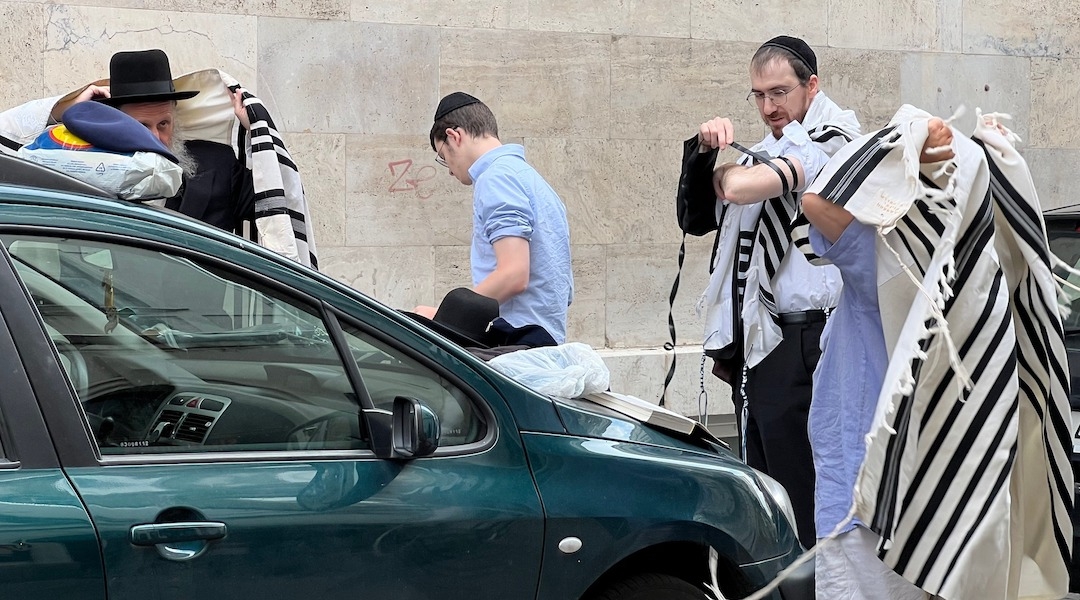
Deutsch regarded the newcomers as members but his original membership didn’t, which caused the organization to split into two factions. Each faction proceeded to operate independently, holding meetings, electing board members, and in the case of the Chabad-linked faction, making changes to the bylaws.
The Chabad-linked faction also began enrolling dozens more members with Deutsch’s cooperation but without his vetting, which he would come to regret. “Most of them or maybe all of them have never even been to Hungary, don’t speak Hungarian,” he said. “They have zero connections to Hungarian Jewry.”
To reclaim their organization from the Chabad-affiliated leaders they regarded as illegitimate, community members turned to rabbinical courts in Budapest and Jerusalem and to the court affiliated with the Conference of European Rabbis. And they won, with all of the courts ordering the reversal of recent decisions or at least a maintenance of the status quo until an investigation could be completed. They’d even managed to get Deutsch to switch to their side and convince him of what they had believed all along: Chabad was not interested in giving but in taking.
When the matter came before Hungarian authorities, the opposite conclusion from that of the religious courts was reached. The government quickly recognized the new Chabad-affiliated leaders. The outcome is being challenged, but Shomrei Hadas members say they don’t expect a reversal given the judicial system’s subordination to the government. Deutsch, who generally supports the Hungarian government and praises its relationship with the Jewish community, believes it erred in this case and should have deferred to religious authorities — the rabbinical courts — on an internal community matter.
Keszler, who replaced Deutsch atop the Chabad-linked faction, did not respond to questions. But in a May announcement to the congregation, Keszler argued that the conflict was personal. He said Deutsch’s complaints were motivated by a desire to cover for his own record of mismanagement.
“We are convinced that Róbert Deutsch’s personal fight harms the perception of Judaism and Orthodoxy and causes irreversible material and moral damage to the religious community,” Keszler’s announcement said.
For longtime MAIOH affiliates, the recent events are far from personal: They resound within the sweep of Jewish history in Hungary. Kelsey said that while watching the worshippers outside the locked synagogue, he found the historical echoes unmistakable.
“I was aware that Chabad was successfully delivering the final blow to a congregation that had survived both the Nazis and the communists,” he said.
Deutsch framed it similarly. “Decades after the Holocaust in Budapest, Jews are not allowed to pray in their shul,” he said. “Even during communism, they were allowed to. Now another Jewish group comes to destroy a place where they pray and close the doors to them.”
This article originally appeared on JTA.org.
A message from our Publisher & CEO Rachel Fishman Feddersen

I hope you appreciated this article. Before you go, I’d like to ask you to please support the Forward’s award-winning, nonprofit journalism so that we can be prepared for whatever news 2025 brings.
At a time when other newsrooms are closing or cutting back, the Forward has removed its paywall and invested additional resources to report on the ground from Israel and around the U.S. on the impact of the war, rising antisemitism and polarized discourse.
Readers like you make it all possible. Support our work by becoming a Forward Member and connect with our journalism and your community.
— Rachel Fishman Feddersen, Publisher and CEO




























